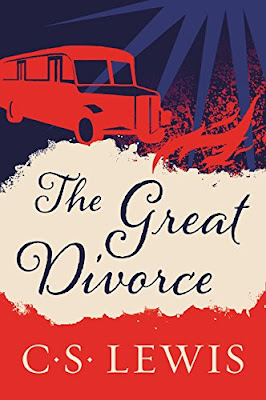Book in Review: Orthodoxy
 I have read almost 4 books by G. K. Chesterton thus far; and
Orthodoxy is a masterpiece. The best
of what I have read from him yet. Witty, hilarious, intellectually
astute--Chesterton is in fine form throughout. And though Orthodoxy is heady,
you will find that Chesterton's humor and skill with the pen make it an entertaining,
almost addictive read. His paradoxical manner of framing big ideas, his
undeniable ability to wield "common" sense as a weapon, his way of
speaking to universal human experiences--together makes him one of the most
enjoyable writers of his time. And he's not pulling any punches with the philosophers
of his day either.
I have read almost 4 books by G. K. Chesterton thus far; and
Orthodoxy is a masterpiece. The best
of what I have read from him yet. Witty, hilarious, intellectually
astute--Chesterton is in fine form throughout. And though Orthodoxy is heady,
you will find that Chesterton's humor and skill with the pen make it an entertaining,
almost addictive read. His paradoxical manner of framing big ideas, his
undeniable ability to wield "common" sense as a weapon, his way of
speaking to universal human experiences--together makes him one of the most
enjoyable writers of his time. And he's not pulling any punches with the philosophers
of his day either.
In the introduction, Chesterton self-deprecatingly describes
himself as a man who sent out from England to explore new lands but gets blown
off course in his travels and unknowingly arrives back in downtown London, where
he then proceeds to claim this "new land" for England! Chesterton
then charts his spiritual journey from agnosticism to Christianity (ultimately in
the form of Roman Catholicism, which I’ll admit is unfortunate) and how he
unknowingly discovered this "new doctrine" on his own--only to find
out, that it was nothing more than the old Christian
doctrine which has been believed for thousands of years. Chesterton is a late
comer to the party, and he doesn't mind admitting that fact throughout!
Chesterton rails against intellectualism, against the
scholastics and against the George Bernard Shaw types. The atheist scientist
who says there is no transcendent meaning to this thing called life. Grown up
skeptics and modernized "experts" who care little for the world. In
short, Chesterton realizes that the fairy tales that he knew as a child, that
wonder he felt within the deepest part of him when he was young, the feeling
that the grass was green because it was "supposed to be green"--were
actually all true. The reason the tales of the "Lady and the Dragon", or "Jack and
the beanstalk" resonated with him so much as a child was because they spoke to a
certain human truth, an internal testimony, that there is something more than
just molecules and chance. There had to be something more. So Chesterton
figures out an understanding of original sin, of creation, of a transcendent
God, and of the archetypal tale because it was really true--the story of God
coming into the world to bring man back to Himself. Chesterton is unabashedly
romantic, and he rejoices to find that Christianity is as well.
In the chapter that perhaps hit me the hardest (The Flag of
the World), Chesterton confronts exactly what our posture as Christians needs
to be towards the world. It cannot be escapism or pessimism; an unhealthy
desire to withdraw from the darkness of the world: "For our Titanic
purposes of faith and revolution, what we need is not the cold acceptance of
the world as a compromise, but some way in which we can heartily hate and
heartily love it. We do not want joy and anger to neutralize each other and
produce a surly contentment; we want a fiercer delight and a fiercer
discontent. We have to feel the universe at once as an ogre' castle, to be
stormed, and yet as our own cottage, to which we can return at evening." Wow.
That is romance in writing and ointment to my own personal numbness I have been
struggling with recently. Another one: "The point is not that this world
is too sad to love or too glad not to love; the point is that when you do love
a thing, its gladness is a reason for loving it, and its sadness a reason for
loving it more."
This is a great book, and I am already doing a second pass
through it because there is so much in it that I missed. Chesterton is
medicinal to the ills of a modern world--and Orthodoxy in particular has lost
no degree of relevance in the century that has passed since its composition.



Comments
Post a Comment